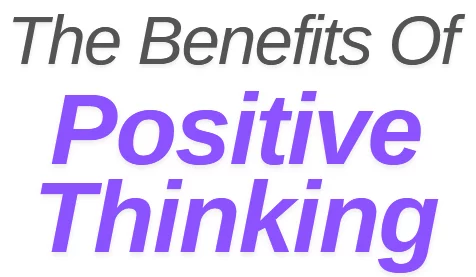
Management: The Benefits Of Positive Thinking
It means focusing more on the positive side of an event than the negative.
This does not mean ignoring the bad things.
It means that you accept the bad, but then start working on making the most out of whatever has happened.
Positive thinking allows you to approach life’s challenges with positivity and optimism.
Your thoughts make your actions, and your actions define your success.
You can develop a positive mindset on our Line Manager courses to become a more consistent leader.
The Benefits Of Positive Thinking
You cannot change the world outside, but you can change how you react to it.
Changing how you react to the world will change how you feel about yourself, and so has a real impact on your well-being.
The benefits of positive thinking go far beyond just feeling good at the moment.
Being positive also goes hand in hand with self-confidence, which are key skills for a manager.
The physical benefits include:
- Increased life span
- Better psychological and physical well-being
- Better cardiovascular health
- Reduced risk of death from cardiovascular disease
- Positive Attitude
- Positive people around
- More pain tolerance
The mental benefits include:
- Increase in creativity
- Greater problem-solving skill
- Clear and realistic thinking
- Better mood
- Lower rates of depression
- More resilience against stress
- Increase in confidence
- Better time management
Can Positive Thinking Change Your Brain?
There is some evidence that positive thinking can change your brain.
Positive thoughts will reduce your cortisol levels and increase your serotonin levels.
These in turn can change which genes are expressed in your brain.
Positive thinking is a great tool for dealing with imposter syndrome too, helping to combat those negative thoughts.
This isn’t well researched, so we wouldn’t blame you if you take this with a grain of salt.
However, it is widely accepted that London cab drivers physically change the structure of their brain during their training when they learn their way around London’s roads.
So perhaps it wouldn’t be surprising if consistently thinking positively also changed your brain!
Conclusion
Positive thinking does not mean ignoring the negative. It means approaching the negative situations with hope and productivity.
Positive thinking is a learned skill. This means that anyone can learn it and everyone can improve theirs.
If you think positively, then it helps in all aspects of everyday life. It improves your mental health and reduces your negative thoughts.
- Facebook: https://www.facebook.com/profile.php?id=100066814899655
- X (Twitter): https://twitter.com/AcuityTraining
- LinkedIn: https://www.linkedin.com/company/acuity-training/





